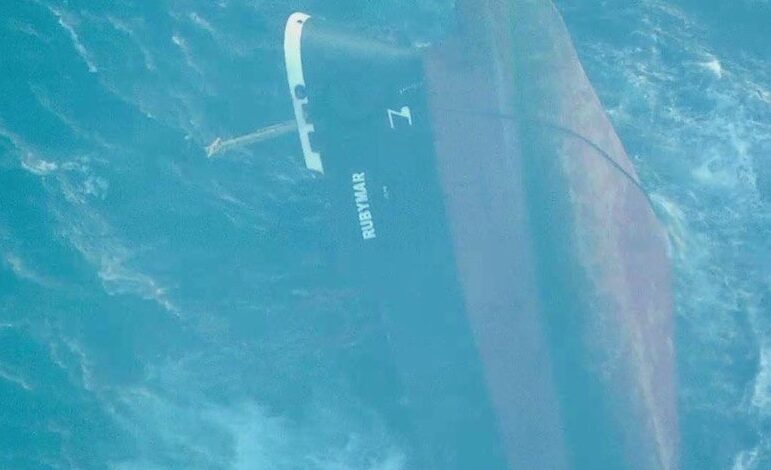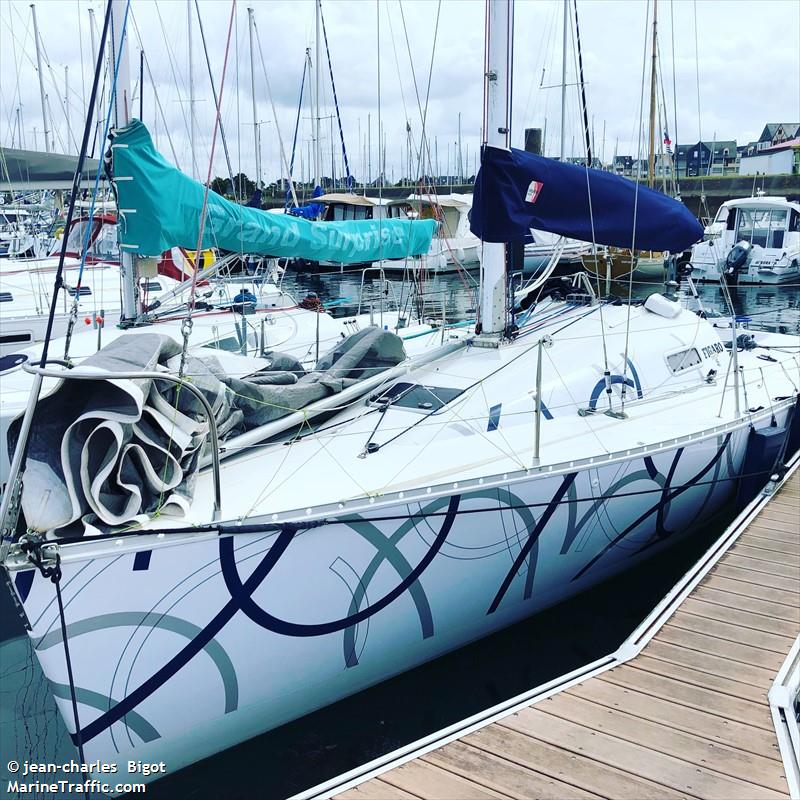Rubymar’s sinking poses ‘major environmental crisis’ in the Red Sea

The Red Sea shipping crisis has entered a new chapter with the sinking of the Rubymar bulk carrier early on Saturday morning.
The insurance situation regarding the Lebanese-owned, Greek-managed, Belize-registered ship remains unclear. The vessel has become the first constructive total loss since the Houthis from Yemen started their campaign against merchant shipping five months ago in solidarity with Hamas’s ongoing war with Israel.
The ship was struck by missiles fired by Yemen’s Houthi rebels on on February 18 forcing the crew to evacuate.
The ship creates a triple threat to the Red Sea – with its bunker fuel already creating a 30 km slick, its cargo of fertiliser posing a potential ecological disaster, and the wreck itself becoming a hazard to other ships passing by. The ship was carrying 21,000 metric tons of ammonium phosphate sulphate fertiliser when it was struck last month.
Ahmed Awad Bin Mubarak, the prime minister of Yemen’s internationally recognised government, called the ship’s sinking “an unprecedented environmental disaster.”
“It’s a new disaster for our country and our people,” he wrote on X.
“Without immediate action, this situation could escalate into a major environmental crisis. As well as any further leaks of fuel oil from the engines, the sinking of the vessel could further breach the hull, allowing water to get in contact with the thousands of tonnes of fertilizer, which could then be released into the Red Sea and disrupt the balance of the marine ecosystems, triggering cascading effects throughout the food web,” commented Julien Jreissati, a programme director at Greenpeace.
The dire security situation in the southern Red Sea and the Gulf of Aden has also seen the suspension of the dismantling of the FSO Safer, a 48-year-old, decaying tanker that the United Nations has been attempting to move.
Splash has repeatedly reported on the UN’s operation to remove the FSO Safer from Yemeni waters. Last year, the UN bought a Euronav tanker and was able to empty the rusting, abandoned FSO Safer’s cargo of 1.14m barrels of crude oil.
However, since then the security situation in the region has deteriorated dramatically. Thanks to the insecure environment around Yemen, combined with a fundraising shortfall, the operation to tow the ship to a place to be scrapped has had to be put on hold.
In total, some 60 ships have been targeted by the Houthis in the five months since Israel went to war with Hamas.

 bulk carrier early on Saturday morning.
bulk carrier early on Saturday morning.
” Lebanese-owned, Greek-managed, Belize-registered ship ”
That makes e welcome change from the misdescriptions in most media.
Thank you.
Yes, agree. And likely a “chop suey” crew onboard of various nationalities, just for good measure.
This was entirely predictable and the consequences rest fully with those who destroyed the ship. There will no doubt be bleating from the green lobby to redeem the position. I doubt there will be a rush of volunteers to clean things up.
The perpetrators believe they have succeeded big time . They have. not. They have fouled their own nest. Those responsible should know they are now likely to be brought to book.
Yes … in fact, imagine if they actually succeeded in “hitting” more ships, crude tankers, that they are trying to target??
How would they measure success then???
It defies all common sense that this has been going on for months, with little if any diplomatic effort to stop the clear understanding and knowledge that this has escalated to a “no win” situation for everyone involved. Polluting the entire ocean on your own coastline, on purpose, repeatedly, is the definition of insanity. But hey, they’d likely throw more missiles at anyone for the right price, eh?